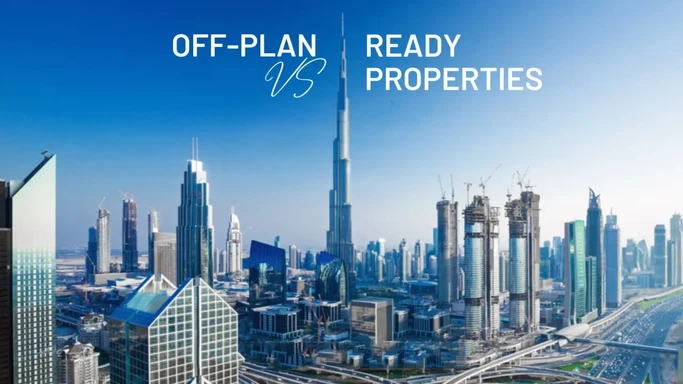Introduction
Looking for properties for rent in Abu Dhabi? Whether you’re relocating, upgrading, or just exploring your options, understanding the local market, current trends, and exact costs will help you make a smart decision. In this guide, we’ll cover apartments for rent in Abu Dhabi, what drives prices, what tenants often overlook, and how to rent safely and legally.
Thank you for reading this post, don't forget to subscribe!What does “Properties for Rent in Abu Dhabi” include?
“Properties for rent in Abu Dhabi” cover a wide variety of options, including both apartments and villas or townhouses. These range from compact studios to spacious multi-bedroom units designed for larger families. The rental market includes affordable homes for budget-conscious tenants, mid-tier residences for working professionals, and luxury developments for those seeking premium finishes and world-class amenities. While many tenants search specifically for apartments for rent in Abu Dhabi, it is useful to know that villas are also widely available, each with different lifestyle benefits, costs, and availability across the city.
Why rent vs buy in Abu Dhabi right now
- Flexibility: Renting allows you to move easily if your job, lifestyle, or family situation changes.
- Lower upfront cost: Buying requires significant down payments and fees, whereas renting usually involves a deposit and first rent installment.
- Market conditions: Rental prices have risen in recent years, making renting a practical choice for those not ready to commit long-term. Renting also allows you to test different neighborhoods before making a buying decision.
In short, renting in Abu Dhabi gives you the advantage of mobility, financial flexibility, and access to modern living spaces without the commitment of property ownership.
Current state of the rental market: key statistics (2025)
- Affordable apartments have seen steady increases in rent, reflecting strong demand.
- Mid-tier apartments, especially in central neighborhoods, have experienced sharp growth due to location and amenities.
- Luxury apartments remain in high demand, though price growth has been moderate compared to other segments.
- Villas have also seen price increases, particularly in larger and more exclusive communities.
Overall, the rental market continues to be competitive, with both local and expat demand pushing rates upward in 2025.
Average rents: studios, 1-bedroom, 2-bedroom & 3+ bedroom apartments
Here’s a general breakdown of current rental averages in Abu Dhabi:
| Apartment Type | Typical Annual Rent (AED) | Notes |
|---|---|---|
| Studio | AED 30,000 – 65,000 | Popular among singles and students; prime areas are more expensive. |
| 1-Bedroom | AED 70,000 – 100,000+ | Widely available in both affordable and luxury categories. |
| 2-Bedroom | AED 100,000 – 130,000+ | Preferred by small families; strong demand in central communities. |
| 3-Bedroom+ | AED 150,000 – 200,000+ | Often located in luxury towers or villas with larger living spaces. |
Note: Suburban or less developed neighborhoods often offer significantly lower rents, making them attractive for budget-conscious tenants.
Top neighborhoods for apartments for rent in Abu Dhabi
- Al Reem Island — A hub of modern towers, high-rise apartments, and waterfront living.
- Saadiyat Island — Known for luxury properties, beaches, and cultural attractions.
- Al Raha Beach — Waterfront apartments, family-friendly communities, and excellent amenities.
- Khalifa City — Popular for affordable, spacious apartments and villas with quieter surroundings.
- Al Nahyan — Centrally located with rising demand among professionals.
- Tourist Club Area (TCA) — Offers both mid-tier and luxury apartments, with strong rental activity.
Luxury vs Affordable Apartments: what to expect
| Feature | Affordable Apartments | Luxury Apartments |
|---|---|---|
| Size & finishes | Practical layouts, simple finishes | Spacious layouts, high-end interiors |
| Amenities | Parking, basic gyms, small pools | Concierge, spas, smart home features, premium gyms |
| Location | Suburbs or mid-city | Central islands, waterfront, or prestigious districts |
| Rent growth | More volatile, affected by supply/demand | Stable, premium pricing, high tenant retention |
Villas vs Apartments: Differences in cost & lifestyle

Villas and townhouses in Abu Dhabi typically come with higher costs due to:
- Larger floor space, often with private gardens and multiple floors
- Greater privacy and independence compared to shared towers
- Additional maintenance requirements
- Locations that are generally farther from the city center
They’re best suited for families or individuals who prioritize space, privacy, and a quieter lifestyle. Apartments, on the other hand, are ideal for those who want central access, modern amenities, and lower recurring costs.
Amenities that matter for renters
Key features that tenants look for when choosing a property include:
- 24/7 security and building access systems
- Designated parking spaces
- Fitness centers, swimming pools, and clubhouses
- Children’s play areas and family-friendly facilities
- Proximity to schools, healthcare, and shopping centers
- Scenic views, natural light, and quality construction
- Reliable maintenance and responsive management services
Commitments & recurring costs beyond rent
In addition to rent, tenants should account for:
- Security deposit (usually one month’s rent)
- Utilities such as electricity, water, and cooling charges
- Service or community fees in some developments
- Parking costs (if not included)
- Real estate agency fees (if applicable)
- Moving, furnishing, and setup costs
On average, expect additional expenses to range between 5%–15% of annual rent.
Legal framework: Tawtheeq, tenancy contracts, rights & obligations
- Tawtheeq system: All rental contracts in Abu Dhabi must be registered with the Department of Municipalities & Transport. This ensures tenants have legal protection and access to utilities.
- Tenancy contracts: Should clearly define rent amount, payment schedule, duration, renewal terms, and maintenance responsibilities.
- Rent increases: Governed by official rental indexes, with caps on how much landlords can raise rents annually.
- Dispute resolution: Tenants and landlords can approach official committees to resolve conflicts fairly.
How to search: online portals, agents, inspections
- Use trusted property portals: Bayut, Property Finder, Dubizzle, etc.
- Agents: use licensed real estate agents, check reviews.
- Conduct viewings: inspect all aspects (plumbing, AC, windows, water pressure)
- Photos alone can mislead—always try to see in person.
Negotiating rent & lease terms
- Ask if landlord will accept fewer cheques (e.g. annual upfront vs quarterly)
- See if certain amenities or maintenance costs can be negotiated in
- If lease renewal, you might negotiate rent increase or get favorable terms if you renew early
Deposit, payment schedule, and brokerage fees
- Security deposit often equals one month’s rent (sometimes more for villas)
- Payments often via post-dated cheques—number of cheques depends on landlord/area (could be 1, 2, 4 etc)
- Agency/broker fees: verify what you pay, ensure agent is licensed
Lease renewal & rent increases: what recent trends show
- Recent data shows rents rising 9-12% year-on-year in many areas. Gulf News+1
- Some neighborhoods have seen steeper hikes (Tourist Club Area studios, etc.) Bayut+1
- Renewal often triggers review of rent index; if renewal notice is late, landlord may enforce higher increase
Safety, security, and community features
- Neighborhood safety ratings
- Secure building access
- Fire safety systems, emergency exits
- Neighborhood lighting, CCTV
Public transport, accessibility & commute time influences
- Proximity to major roads, highways, and public transportation
- Traffic patterns (rush hour) can dramatically affect commute time
- Access to key points: schools, hospital, shopping, business districts
Family-focused vs single / young professional preferences
- Families often seek more bedrooms, green space, proximity to schools, quieter neighborhoods
- Professionals may prioritize proximity to business districts, modern apartments, amenities, lifestyle
Pets, utilities, and other small print (what many forget)
- Pet policies vary: many landlords do not allow pets or charge extra
- Utility billing: some properties include AC / cooling charges, others bill separately
- Maintenance responsibility: who fixes what (landlord vs tenant)
Trend: off-plan rentals & early-bird offers

- Some developers offer rental units that are off-plan (not yet built or still under construction) at discounted rates or special terms
- Early-bird deals might include free service charges for initial period or reduced rent
How macro trends (inflation, supply, demand) are impacting rents
- Supply shortage in prime areas drives rents up
- Inflation increases cost of maintenance, which gets passed on to tenants
- Demand from expatriates, students, professionals remains strong
Forecast: What to expect in rental rates for rest of 2025
- Continued moderate increases, especially in mid-tier and luxury segments
- Possibly more growth in neighborhoods tied to new infrastructure, amenities
- Policies or regulation (e.g. rental index, government oversight) may moderate excessive hikes
Common mistakes renters make & how to avoid them
- Not registering with Tawtheeq – leads to legal/utility issues.
- Overlooking total cost of living (utilities, service charges).
- Not checking actual condition (photos can be misleading).
- Accepting unfavorable payment terms without negotiation.
- Ignoring proximity to transport, schools, commute time.
Conclusion
To find the right property for rent in Abu Dhabi, align what matters most to you—budget / lifestyle / location / amenities. Use up-to-date data (like rental market reports), inspect potential apartments, understand legal obligations (especially Tawtheeq), and plan for ongoing costs. If you do that, you’ll find an apartment that meets your needs and gives you quality and value for what you pay.[source]
FAQs
Q1: What is the average rent for a 1-bedroom apartment in Abu Dhabi?
Q2: Which neighborhoods offer the best value for apartments for rent in Abu Dhabi?
Q3: How steep have rent increases been recently?
Q4: What legal protections do renters have?
Q5: What additional costs should renters budget for?
A: Beyond rent: security deposit; utility bills; community/service fees; agent/broker fees; parking charges; maintenance costs. Also, hidden costs like AC (cooling) charges can add up, particularly in summer.
Q6: Is furniture included in rent?
A: Sometimes yes, sometimes no. Furnished apartments are common in certain luxury developments; many affordable or mid-tier units are rented semi-furnished or unfurnished. Always check the listing.







